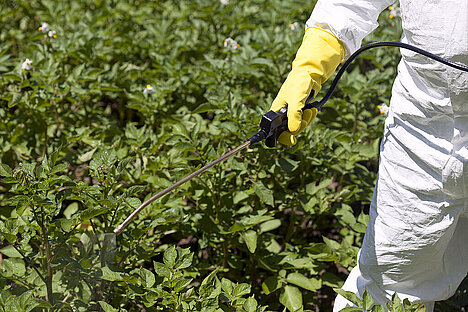Organophosphates

If you are interested in your dog's health, you may have heard of organophosphates. These chemical compounds are often used as pesticides or insecticides, but are also found in some dog food and grooming products. What exactly are organophosphates and how do they affect your dog? Find out more about this ingredient and its pros and cons in this article.
What are organophosphates?
Organophosphates are organic molecules that contain phosphorus. They are produced synthetically and are highly toxic to insects and other pests. This is why they are often used as pesticides in agriculture or as insecticides in veterinary medicine. Organophosphates work by inhibiting the enzyme acetylcholinesterase, which is responsible for the transmission of nerve impulses. This leads to overstimulation of the nervous system and paralysis of the muscles.
Organophosphates can also be dangerous for mammals such as dogs if they ingest or inhale too much of them. Symptoms of organophosphate poisoning can include
- Salivation
- vomiting
- diarrhea
- tremors
- cramps
- shortness of breath
- Unconsciousness
- Death
The severity of the poisoning depends on the dose, the type of organophosphate and the dog's state of health. If you suspect that your dog has ingested organophosphates, you should consult a vet immediately.
What are the benefits of organophosphates?
Organophosphates are not only harmful, but also have some benefits for dogs. Firstly, they can help to repel or control parasites such as fleas, ticks or worms. These parasites can not only be a nuisance, but can also transmit diseases or trigger allergies. Organophosphates can therefore improve your dog's health and well-being.
On the other hand, organophosphates can also increase the shelf life of dog food. They act as preservatives and prevent the growth of bacteria or fungi. This can preserve the quality and taste of the food and reduce the risk of food poisoning.
How can you make handling organophosphates safer?
Organophosphates are not bad for your dog per se, but you should still be careful how you use or avoid them. Here are some tips on how to make handling organophosphates safer:
- Always read dog food and grooming product labels and look for ingredients such as malathion, diazinon or chlorpyrifos. These are common examples of organophosphates.
- Only use products that are specifically designed for dogs and have the correct dosage. Always follow the manufacturer's or vet's instructions.
- Avoid treating your home or garden with pesticides that contain organophosphates. If you do, keep your dog away from the treated areas and ventilate well.
- Wash your hands thoroughly after contact with organophosphates and avoid touching your face or your dog.
- Store organophosphate-containing products out of your dog's reach and dispose of them properly.
Organophosphates are an ingredient that can have both benefits and drawbacks for your dog. They can repel or fight parasites and increase the shelf life of dog food, but they can also lead to poisoning.
If you notice any signs of hypersensitivity or poisoning in your dog, you should see your vet immediately. We are not a substitute for a vet, but we try to be as accurate as possible. Every dog reacts differently and we recommend you get a second opinion or consult your vet if in doubt.
Stay healthy and take good care of your four-legged friend!😊